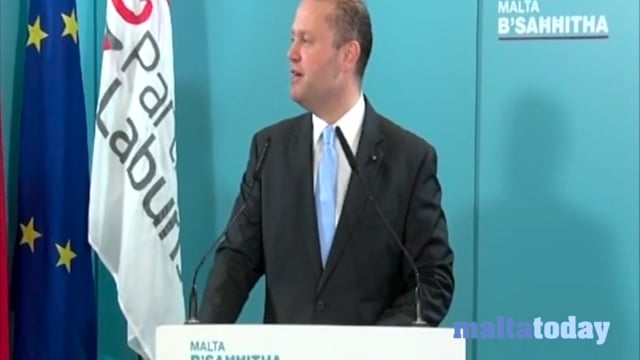PM will sack Mizzi if audit finds hidden assets inside offshore company
Muscat: “If these ‘millions’ will be found, Konrad Mizzi will be sacked. The investigation will track down any movements of this alleged cash –if nothing is found, it would be Simon Busuttil who would have lied”


Seasoned interviewer Reno Bugeja was on his guard as Prime Minister Joseph Muscat deflected an opening question on Konrad Mizzi’s and Keith Schembri’s offshore companies in Panama. One minute into Dissett, the PBS head of news alerted his guest that he had little time for political bosh.
Muscat’s reply to the necessary question as to the fate of his deputy leader for party affairs and chief of staff – his “most difficult two weeks” – came with a quick run-through of his first two weeks in office: a hard slog during which Brussels warned him not to cut income tax as had been bequeathed in the PN’s last budget in power.
But Bugeja called him out, telling the prime minister that the indelible stain of ‘Panamagate’ was getting worse: Muscat was not firing people, and he was not even stepping up to the plate on overdue reforms to adjust his good governance deficit.
“The Opposition leader is saying – in parliament, not outside the House – that these offshore companies are holding millions in euros from corruption proceeds,” Muscat replied. “Mizzi said it was untrue and disclosed the financial structure, and is carrying out an independent audit and an investigation by the Inland Revenue Department. If these ‘millions’ will be found, Mizzi will be sacked. The investigation will also track down any movements of this alleged cash – but if nothing is found, it would be Busuttil who would have lied on these people.”
But the prime minister defended Keith Schembri, by sheer dint of the fact that his chief of staff is not elected, and that his business interests in the Kasco Group predate his political career.
He denied adopting double standards for former ministers who lost their jobs.
“I’m doing the same as I did in other cases – I’m waiting for the result of these investigations,” Muscat said, who in the past lost two ministers separately after an investigation by an ad hoc commission, and after an inquiry from the National Audit Office.
“I’ve done something no other prime minister did before. I removed a minister. Ministers have resigned. I did this to keep up standards.”
The prime minister said he had spoken to Cabinet colleagues about the offshore revelations, saying it had “worried [him] and caused [him] hurt.”
“The people involved are genuine; the advice they got was legally correct but politically naïve and very insensitive. Three years down the line and just a day since we registered Malta’s highest ever economic growth of 6%... we’re talking about Panama.”
Muscat dispelled suggestions that he should sue critics who were alleging bribery and corruption over the offshore revelations. “I’ll take a step back when it comes from the media… I’ll only sue for libel my political adversary, the Opposition leader.”
But Bugeja pressed on Muscat the fact that his government was facing a third scandal after the Café Premier and Gaffarena affairs, putting at risk Labour’s programme for civil liberties and economic growth.
Muscat took issue with the weight accorded to the scandals, and measures Labour took to raise pensions or make childcare free.
“Had we not taken the decisions we took in the first days we took office, today you’d be asking me about the savings people lost because of a banking default over Enemalta’s bankruptcy… about the jobs people lost when a factory suspended layoffs up until after the general election. Today there are more jobs than ever.
“My main worry today is solving the pending lay-offs at De La Rue, and ensure that some of the country’s most skilled workers have an alternative. My priority is to see that lower-income groups see their wages grow during this unprecedented economic growth.”
Bugeja put to Muscat the reality that Labour voters – 10% of those who voted Labour both in 2008 and 2013 according to MaltaToday polls – said they will abstain in a forthcoming election.
“I’d expect to be 20% as we speak. Our response lately did not connect well with people,” Muscat conceded.
“But three years ago they said that with me in power Malta would see more people jobless, less growth, and that it would need a bailout: today the people are satisfied on income tax cuts, energy prices, free childcare, more jobs and for saving Enemalta.”
Bugeja countered that Muscat had weakened the ministerial code of ethics, who in turn insisted the code was “realistically… updated to present-day needs”.
Instead he pointed out that under Labour, ministers and MPs remained liable for any past crimes of political corruption right up until their death, with no proscription on such crimes. “We introduced a Whistleblower’s Act and a party financing law… now we’re working on rules to have government chairpersons submit to hearings.”








.jpg)




.jpg)






.png)

